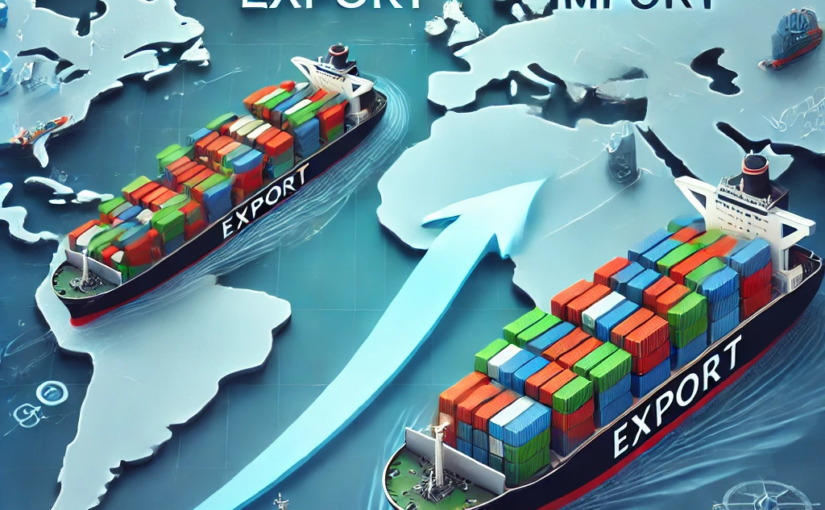¡Por qué ya no debemos aguantar más a Trump y compañía!
Por

Werner Hoffmann
Democracia del centro – porque los extremos destruyen las naciones.
Nuestro poder de mercado: Es hora de plantarle cara a Trump y a la dominación de EE.UU.
Los países democráticos del mundo deben tomar conciencia de su enorme poder económico — y utilizarlo. El mundo no depende tanto de Estados Unidos como quieren hacer creer Donald Trump y sus seguidores.
Estados Unidos tiene unos 330 millones de habitantes — impresionante, sí. Pero la Unión Europea ya cuenta con más de 450 millones de personas. Si sumamos nuestros aliados democráticos, formamos una alianza global realmente poderosa:
- 67 millones en el Reino Unido
- 39 millones en Canadá
- Más de 1.400 millones en India
- 126 millones en Japón
- 52 millones en Corea del Sur
- 26 millones en Australia
- Casi 5 millones en Nueva Zelanda
Esta #CoaliciónDeDemocraciasDispuestas representa a más de 2.500 millones de personas que viven en sociedades libres y democráticas — con un poder económico, cultural y político gigantesco.
Importaciones y exportaciones: Los datos hablan por sí solos
En 2023, el comercio de bienes entre la UE y EE.UU. superó los 1,1 billones de euros. Las exportaciones de la UE a Estados Unidos ascendieron a unos 500.000 millones de euros, mientras que las importaciones desde EE.UU. fueron de unos 470.000 millones de euros.
Pero en el comercio de servicios, la situación es muy diferente: la UE importa muchos más servicios de EE.UU. de los que exporta, con un déficit anual de aproximadamente 80.000 millones de euros. Entre estos servicios se incluyen:
- Servicios en la nube ofrecidos por gigantes estadounidenses como Amazon AWS, Google Cloud o Microsoft Azure, vendidos en Europa
- Publicidad digital en plataformas como X (antes Twitter), Facebook, Instagram o YouTube, que se muestra en Europa pero se contrata y paga en EE.UU.
- Suscripciones a streaming como Netflix, Disney+ o Apple TV, que distribuyen contenido estadounidense a nivel global
- Suscripciones de software como Microsoft 365, Adobe Creative Cloud, Salesforce o Zoom
- Ingresos por aplicaciones en App Stores de Apple y Google, con gran parte de los beneficios yéndose a EE.UU.
Es hora de gravar correctamente los servicios digitales

Estos servicios digitales deben ser tratados como productos físicos al entrar en la UE — con aranceles de importación o tasas digitales de uso. No puede ser que una pequeña empresa alemana pague aranceles por cada tornillo, mientras miles de millones fluyen sin impuestos a través de servidores en California.
Impuestos justos para las empresas estadounidenses
Quien gana dinero en Europa debe pagar impuestos aquí. Muchas multinacionales estadounidenses siguen desviando sus beneficios a través de Irlanda, Luxemburgo o los Países Bajos para minimizar sus obligaciones fiscales. Esta evasión fiscal agresiva no puede seguir siendo tolerada.
Las grandes tecnológicas deben declarar y pagar impuestos en los países donde generan sus ingresos — y no en paraísos fiscales.
Nuestro mensaje para Trump y sus aliados
Trump y sus seguidores deben entender algo muy claro:
No dependemos de ellos —
ellos dependen de nosotros.
Si EE.UU., bajo Trump, vuelve al nacionalismo económico, entonces nosotros — las democracias fuertes — debemos responder con contundencia: con contramedidas arancelarias, impuestos digitales y políticas firmes.
Tenemos el poder — solo falta usarlo.

#Aranceles #EEUU #Trump #GigantesDigitales #ComercioUE #ImpuestoDigital #ComercioJusto #Democracias





